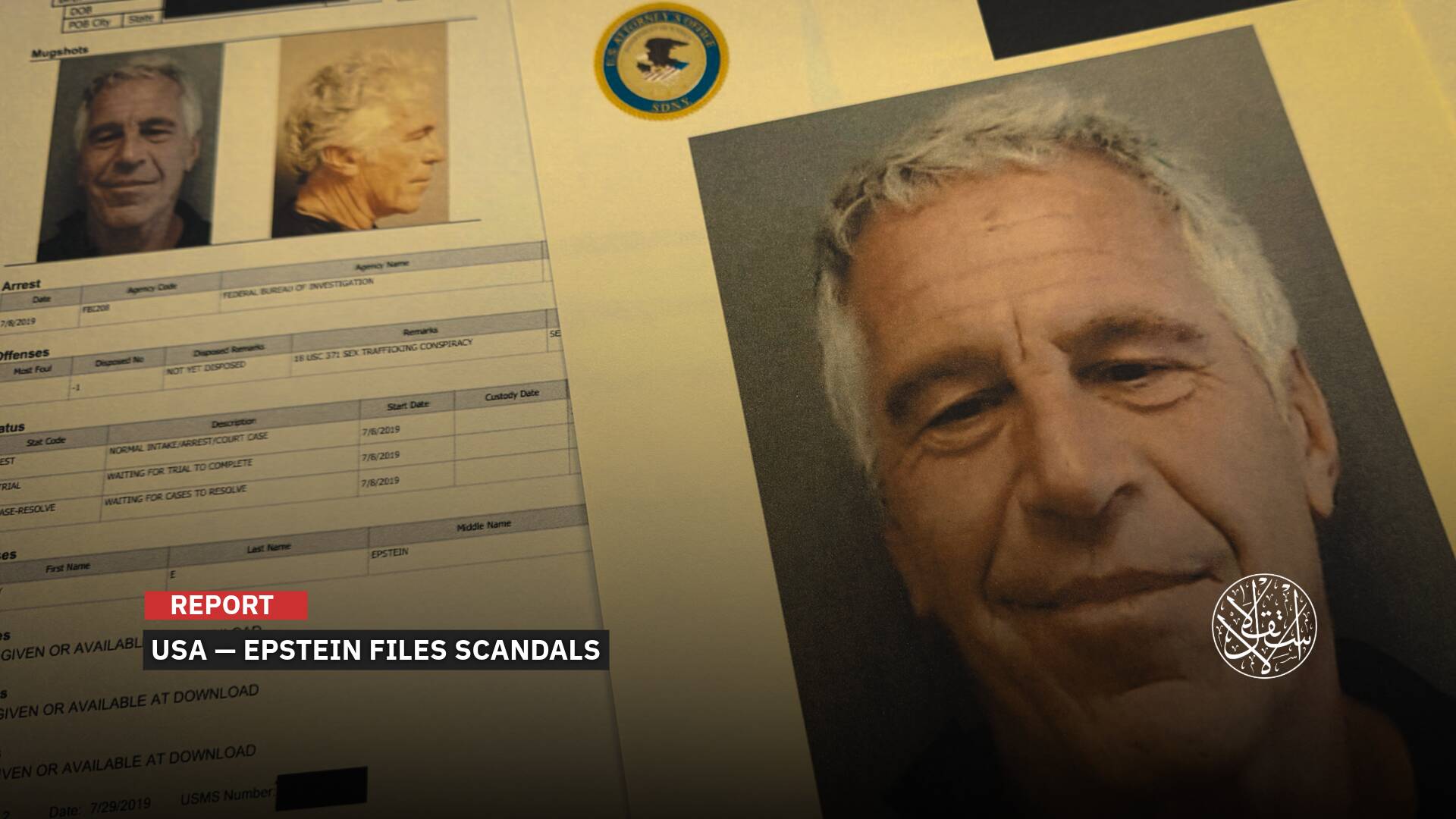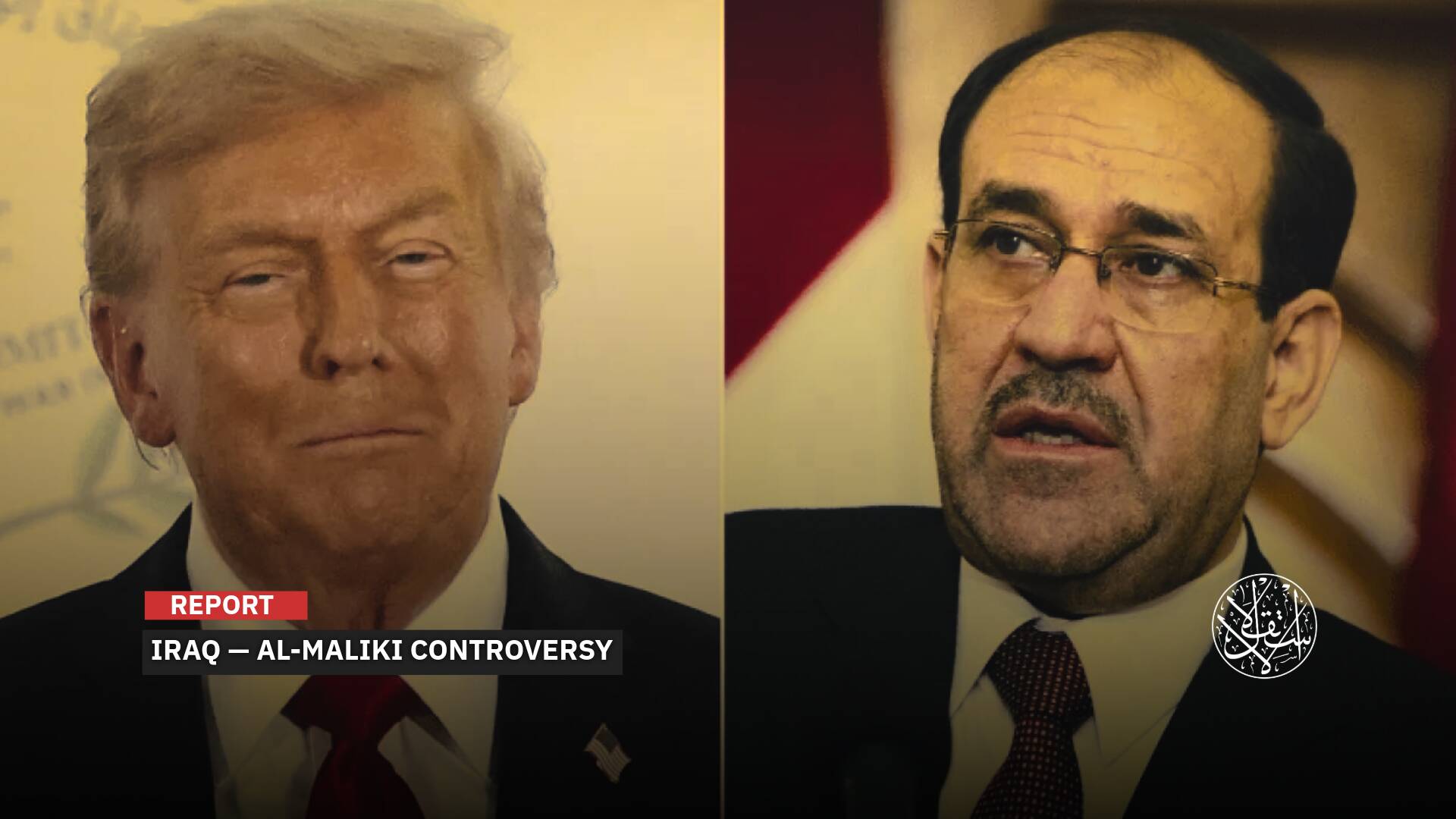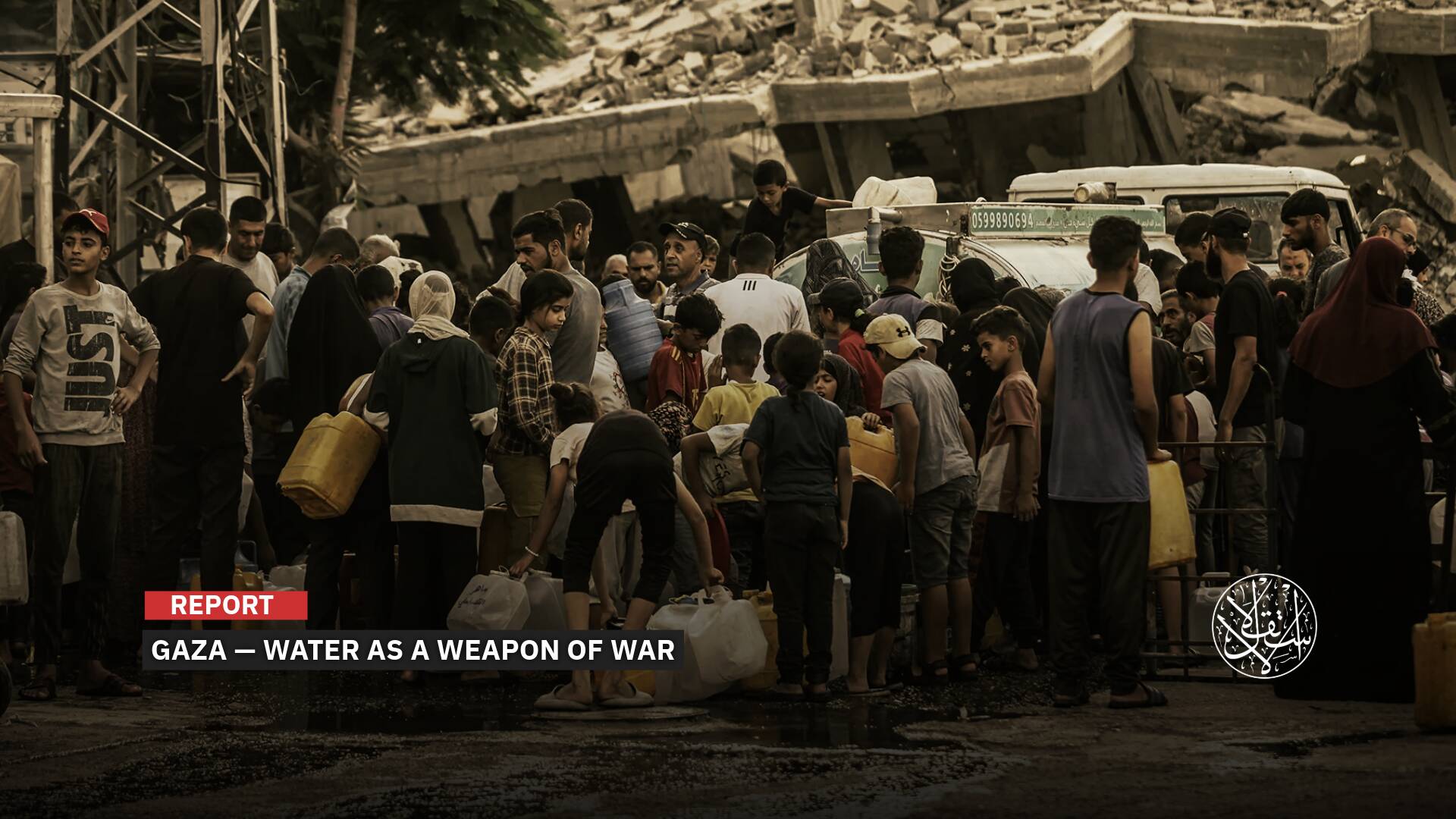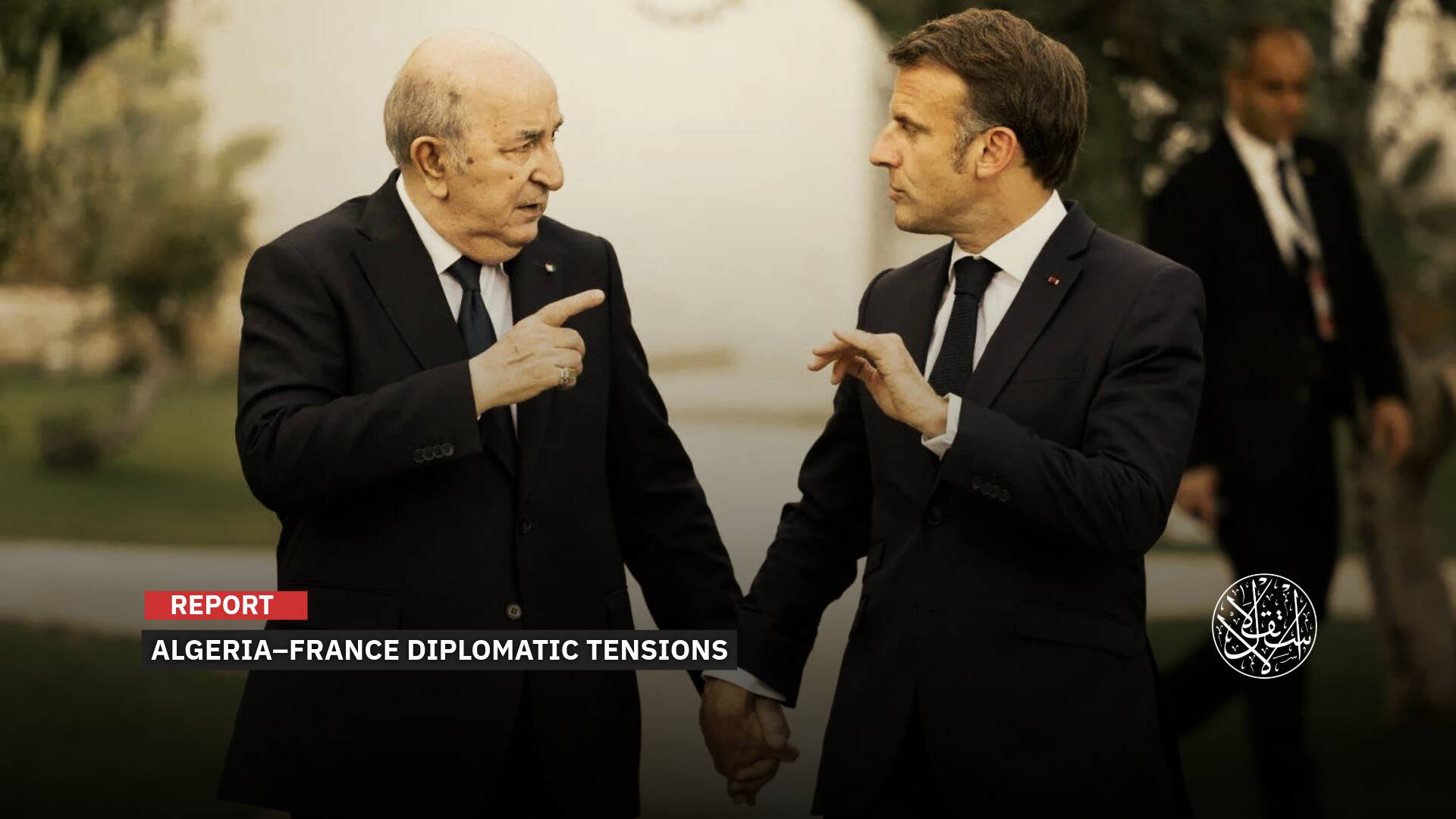How Unprecedented Anti-Immigrant Riots Erupted in Northern Ireland
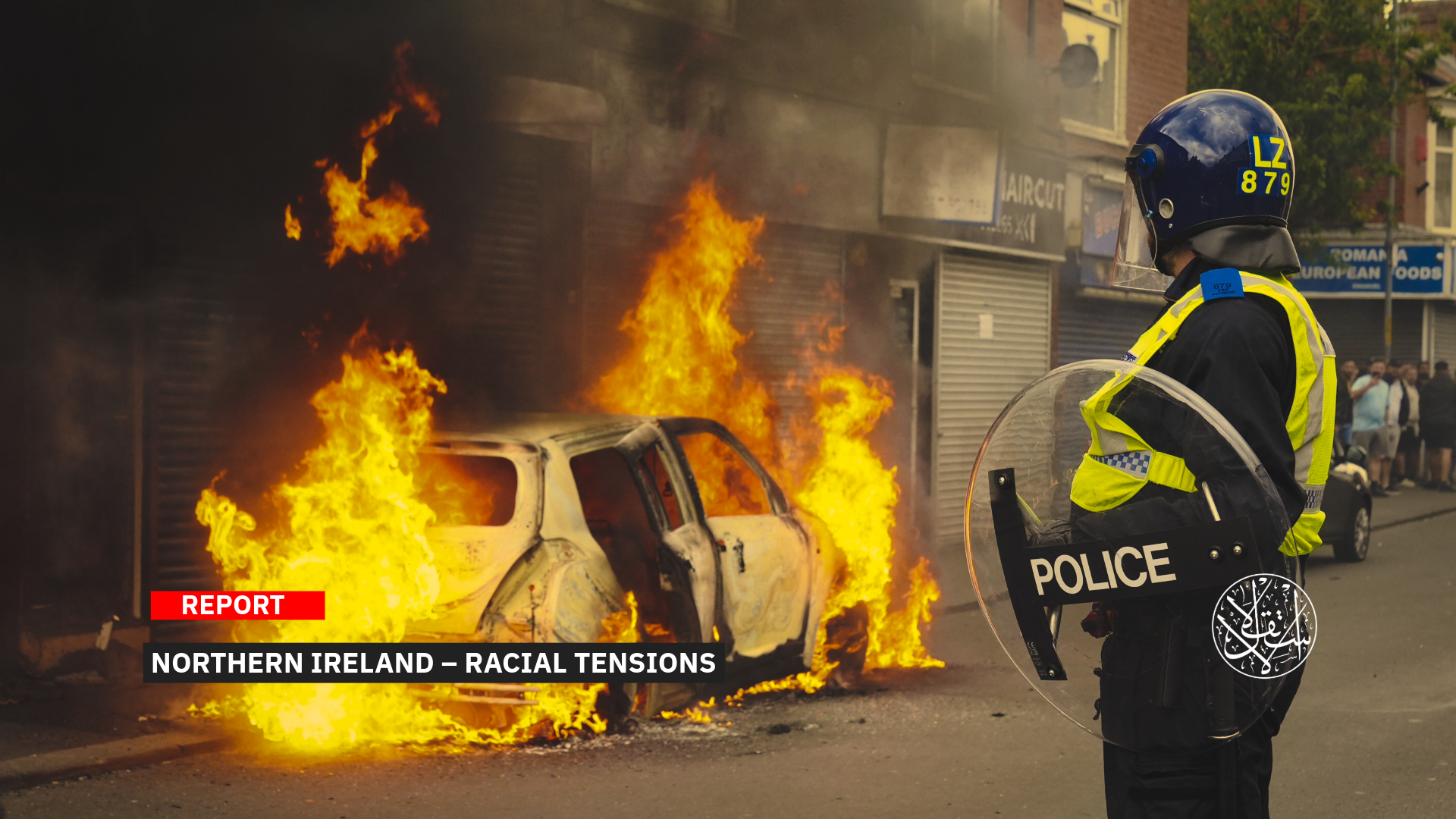
“UK Prime Minister Keir Starmer described the unrest in Ballymena as mindless violence.”
Racially motivated violence erupted recently in Northern Ireland after the arrest of two teenagers, said to be Romanian immigrants, who were accused of attempting to rape a girl, sparking a wave of anger directed particularly at immigrants from Eastern Europe.
UK Prime Minister Keir Starmer strongly condemned the unrest in Ballymena and other parts of Northern Ireland, describing it as mindless violence.
Anger about austerity policies – and the retraction of welfare programmes – since the global financial crisis of 2008 has compounded concerns in Northern Ireland about immigration, especially in Ballymena, a town of around 30,000 people known for its fiercely pro-British sentiment.
Amid the chaos, some Ballymena residents have begun marking their front doors to indicate their nationality to avoid attack, according to the Belfast Telegraph newspaper.
These incidents come amid growing concern about a recurrence of anti-immigrant violence, as witnessed last year in England.
Northern Ireland’s Police force has warned of misinformation fueling hatred and has asked forces in England and Wales for help quelling the unrest.
Mindless Violence
For several consecutive days over the past two weeks, police in Northern Ireland were attacked with fireworks and Molotov cocktails during unprecedented violence following anti-immigrant rioters targeting an ethnic minority group over rape allegations.
These incidents come after two 14-year-old boys, who required a Romanian interpreter during their trial at Coleraine Magistrates' Court, were charged with the attempted rape of a teenage girl on June 7.
The disturbances erupted on the evening of June 9, hours after a peaceful protest in support of the family of the victim, which was attended by thousands of people.
On June 10, a crowd of 300 people threw Molotov cocktails at police, smashed windows, and set fire to cars across the Harryville area of Ballymena.
Police explained that the disturbances began when masked men left the vigil and began setting up barricades and attacking property.
The Police Service of Northern Ireland (PSNI) deployed riot police, fired rubber bullets, used water cannons, and used dog units in an attempt to contain the serious disorder.
More than 60 police officers were injured during clashes with rioters, while other areas, including Belfast, Lisburn, Coleraine, Carrickfergus, Larne, Newtownabbey, and Antrim, also witnessed violence.
More than 30 people were arrested on suspicion of involvement in the incidents.
PSNI Chief Constable Jon Boutcher warned that the rioting risks undermining the criminal justice process in the sexual assault allegations.
Northern Ireland Assistant Chief Constable Ryan Henderson also said the violence was clearly racially motivated and targeted at our minority ethnic community.

Racial Tensions
Although some Northern Ireland ministers have been accused of inflaming these tensions, many have condemned the violence in the strongest terms.
Northern Ireland’s First Minister Michelle O’Neill and Deputy First Minister Emma Little-Pengelly appeared together to voice their condemnation.
O’Neill told reporters in Belfast: “It’s pure racism, there is no other way to dress it up,” while Little-Pengelly described the scenes in Ballymena as unacceptable thuggery.
In a joint statement, ministers from across Northern Ireland’s power-sharing Executive – which includes Sinn Fein, the Democratic Unionist Party, the Alliance Party, and the Ulster Unionist Party – said those involved in rioting have nothing to offer society but “division and disorder”.
For his part, Jim Allister, leader of the Traditional Unionist Voice, said the scenes were deeply distressing, while also highlighting concerns about illegal immigration.
Fianna Fail leader Micheal Martin emphasized the need to address violence, incitement, and misinformation related to immigration at both the societal and political levels.
He stressed that these issues cannot be addressed through the judicial system alone due to the slow pace of procedures.
He indicated that his government is following the British experience in dealing with similar incidents more quickly, but is not currently considering establishing special courts.
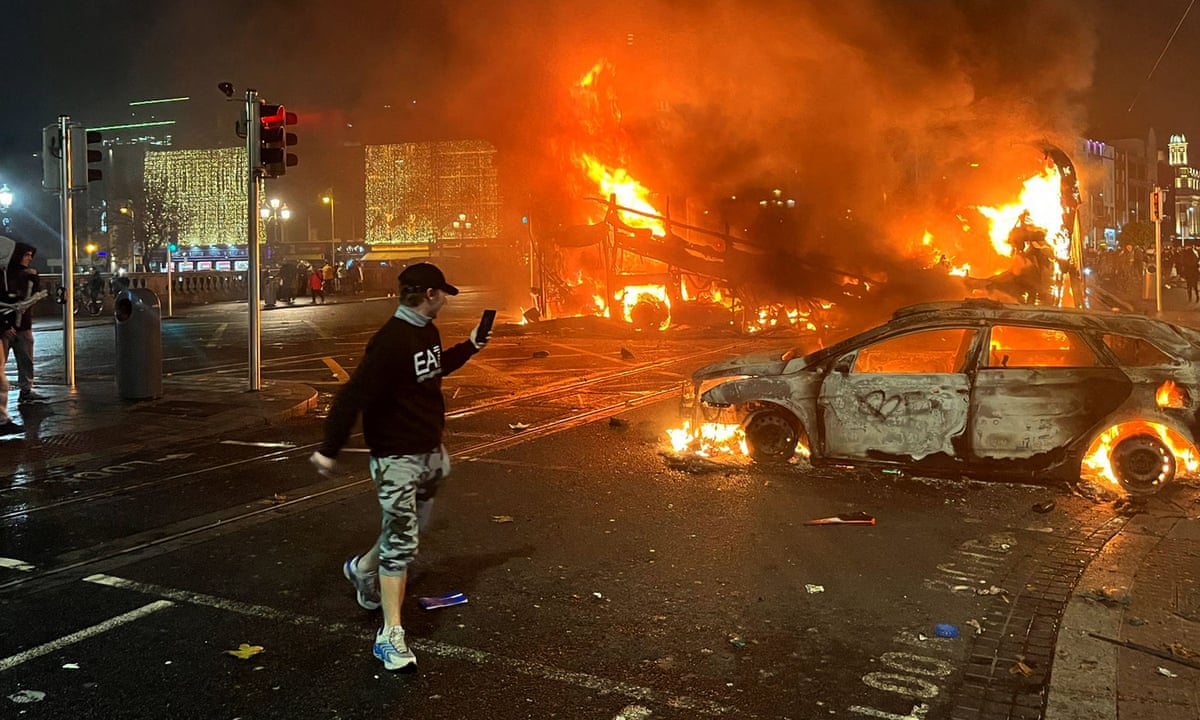
Serious Incident
In a related development, the PSNI recently arrested a 34-year-old man after he threw an explosive device through the window of the Islamic Centre in Belfast during Friday prayers, in an incident described as serious and disturbing.
According to The Independent, the attack occurred on the evening of June 20 on University Road in the south of the city, prompting a widespread security alert.
Police confirmed that the device was capable of exploding and was defused by explosives experts and taken for forensic analysis.
Assistant Chief Constable Anthony McNally confirmed that “the device was potentially explosive. Ammunition technical officers attended and examined the object, which was determined as viable and has since been removed for forensic examination.”
“A 34-year-old man was arrested under the Terrorism Act at the scene, while the motive for the attack has not yet been established,” he said.
Politicians swiftly condemned the cowardly attack, emphasising that individuals should feel secure in their places of worship.
Northern Ireland Secretary Hilary Benn expressed his deep concern, calling the act shameful.
Alliance MLA for South Belfast Paula Bradshaw condemned the attack, which she said did not reflect the diversity of South Belfast in 2025.
Sinn Fein MLA Deirdre Hargey said no one should ever feel unsafe in their place of worship.
Green Party councillor Aine Groogan condemned the attack as a cowardly and vicious act.
“This attack is yet another reminder of the very real danger faced by our Islamic community. The recent rise in racist hate and violence on our streets is a shameful stain on our society,” she said.

Anti-Immigrant Rhetoric
Northern Ireland has witnessed decades of conflict between unionists, mostly Protestants who want to remain within the UK, and nationalists, mostly Catholics who aspire to reunification with the rest of Ireland.
Paramilitary groups played a major role in this sectarian conflict known as ‘The Troubles’, which lasted for nearly 30 years from the late 1960s until 1998, when the Good Friday Agreement was reached, establishing a power-sharing system.
However, this agreement faced opposition from some unionist groups, and some grievances remain unresolved.
The latest riots follow repeated similar outrages across Ireland over the last two years.
Last August, far-right forces went on a rampage in Belfast, smashing windows, throwing petrol bombs and attacking migrants in their homes, cars and businesses.
In the Republic of Ireland, around the same period, far-right anti-immigrant protests took place in the Coolock area of Dublin against plans for a migrant hostel in the area.
Other hostels were targeted, while asylum seekers forced to camp out in Dublin were attacked by masked men with knives.
Like the UK itself, neither section of partitioned Ireland are unique in experiencing racist violence targeting immigrants.
Attacks on immigrants have escalated across Europe with the rise of the far-right and disinformation spread on social media, including recently in England and Ireland.
But legacies of ‘The Troubles’, especially the continued presence of paramilitaries leftover from the conflict, adds an additional element to racially-motivated violence carried out in the region.
Though there is currently no evidence that paramilitaries organized the Ballymena riots, loyalist paramilitaries have been in the past linked to perpetrating racist violence in areas where they have influence.

Immigration appears to be a primary concern for protesters in Northern Ireland. Since 2015, more than 1,800 Syrian refugees have been resettled in the country under the National Indigenous Refugee Resettlement Scheme (NIRRS).
Immigration concerns have been exacerbated by anger over austerity policies and the rollback of social welfare programs since the 2008 global financial crisis.
Daniel Holder, Deputy Director of the Committee on the Administration of Justice, explained that grievances over poor housing conditions were used as a pretext to blame migrants and promote a narrative of uncontrolled mass migration that was not based on real facts.A pretext for blaming migrants and promoting a narrative of uncontrolled mass migration that is not based on real facts.
He added that the committee's report found no clear correlation between the areas where violence has erupted since 2023 and poverty rates or migration intensity, noting that the attacks are carried out by certain far-right elements, including some members of loyalist paramilitary organizations.
Sources
- Ballymena disorder: Six arrested in Northern Ireland - as 32 officers injured in second night of violence
- Why have anti-immigration riots broken out in Northern Ireland?
- Loyalist anti-migrant pogrom in Northern Ireland
- As racially-motivated violence replaces sectarianism, Northern Ireland erupts into riots
- Arrest after suspicious device thrown into Belfast Islamic Centre during evening prayers


